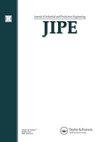Evaluating a sustainable circular economy model for the Indonesian fashion industry under uncertainties: a hybrid decision-making approach
IF 4
Q2 ENGINEERING, INDUSTRIAL
Journal of Industrial and Production Engineering
Pub Date : 2023-01-07
DOI:10.1080/21681015.2022.2162616
引用次数: 3
Abstract
ABSTRACT There is a large increase in the wastes and emissions from the Indonesian fashion industry under economic and population growth. To address this issue, the sustainable circular economy is proposed to reach the goal of sustainable development and zero waste. Previous studies neglect to provide a specific interrelationship model to guide practice to reach a sustainable circular economy. This study proposes a hybrid method integrating exploratory factor analysis, the fuzzy synthetic method and the decision-making trial and evaluation laboratory approach to overcome these shortcomings. It contributes to enhancing the understanding of theory through visual diagrams. The hybrid method makes it possible to interpret complex interrelationships and leads to improvements under resource limitations based on the model. The results reveal that emission reduction and welfare improvement are the causal aspects. Graphic Abstract评估不确定性下印尼时装业的可持续循环经济模式:混合决策方法
摘要随着经济和人口的增长,印尼时装业的废物和排放量大幅增加。为了解决这一问题,提出了可持续循环经济,以实现可持续发展和零浪费的目标。以往的研究忽略了提供一个具体的相互关系模型来指导实践,以实现可持续的循环经济。为了克服这些不足,本研究提出了一种将探索性因素分析、模糊综合方法和决策试验与评价实验室方法相结合的混合方法。它有助于通过可视化图表来增强对理论的理解。混合方法可以解释复杂的相互关系,并在资源限制的情况下基于模型进行改进。研究结果表明,减排和福利改善是造成这一现象的原因。图形摘要
本文章由计算机程序翻译,如有差异,请以英文原文为准。
求助全文
约1分钟内获得全文
求助全文
来源期刊

Journal of Industrial and Production Engineering
ENGINEERING, INDUSTRIAL-
CiteScore
7.50
自引率
6.70%
发文量
21
 求助内容:
求助内容: 应助结果提醒方式:
应助结果提醒方式:


